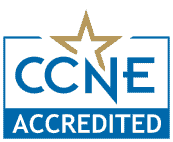
MSN in APRN
Master of Science in Nursing in Advanced Practice Registered Nursing
Lead the Way in Patient-Focused Nursing THROUGH REGENT’S MSN in APRN DEGREE PROGRAM
Are you ready to advance in your career while improving the health outcomes of your patients? Regent’s Master of Science in Nursing (MSN) in Advanced Practice Registered Nursing (APRN) provides cutting-edge integrated multidisciplinary training and is available online with some face-to-face requirements. Discover what you can do with an APRN degree! Choose between two concentrations:
- MSN in APRN – Psychiatric Mental Health Nurse Practitioner (PMHNP)
- MSN in APRN – Family Nurse Practitioner (FNP)
These concentrations offer a pathway that leads to APRN preparation and prepares students to function as change agents by bringing evidence to practice. Upon successful completion of the program, you’re eligible to apply for the APRN certification examination. Learn more about the benefits of pursuing an advanced nursing degree.
SHARPEN YOUR SKILLS
Gain the proficiency necessary to teach confidently and engage with clients, colleagues, and other stakeholders.
BUILD ON A STRONG FOUNDATION
Anchor your knowledge and skill in Christian principles and values.
LEARN FROM THE BEST IN THE MSN-APRN DEGREE PROGRAM
Be mentored by faculty in Virginia Beach who hold the highest degrees in their field. Regent has been ranked among Top National Universities by the U.S. News & World Report for three years (2019, 2020 and 2022). We are also both military and transfer friendly. Experience the Regent difference through our online Master of Science in Nursing – Advanced Practice Registered Nursing (MSN-APRN) degree program.
FULFILL THE IN-DEMAND NEED
The United States Bureau for Labor Statistics predicted that openings for nurse practitioners in the U.S. will increase 45% between 2020 and 2030, and that between 2014 and 2024, every state in the U.S. will see an increase in jobs for nurse practitioners.
The curricula, including the practicum requirements of the Nursing programs offered at Regent University, are written to adhere to the requirements outlined by the Virginia Board of Nursing. However, the rules and regulations vary from state to state. Regent University’s School of Nursing works to ensure our out-of-state enrolled students can utilize practicum sites outside of the Commonwealth of Virginia. Still, we cannot guarantee placement in every state due to ever-changing requirements and regulations. You are urged to check with the regulator in each state where you intend to undertake practicum or to practice to determine the impact of that state’s requirements on your attendance at Regent University.
Regent University is currently not admitting students residing in the following states: Alabama, Alaska, California, Colorado, Louisiana, New Hampshire, New York, Oregon, Pennsylvania, South Dakota, West Virginia and Wyoming. This is not a comprehensive list, and due to the ever-changing requirements and regulations, this list is subject to change on an ongoing basis. Prospective students are urged to verify requirements with their state of residence and/or intended practice.
The master’s degree program in nursing at Regent University is accredited by the Commission on Collegiate Nursing Education, 655 K Street NW, Suite 750, Washington, DC 20001, 202-887-6791.
Regent's MSN in APRN with a concentration in Family Nurse Practitioner (FNP) will prepare you for your APRN certification and to provide a wide range of family-focused healthcare services.
Learn MoreRegent's MSN in APRN with a concentration in Psychiatric Mental Health Nurse Practitioner (PMHNP) will prepare you for your APRN certification and to provide holistic care to patients and their families with common, acute or chronic mental health problems.
Learn MoreOn completing the MSN – APRN degree, you can:
- Lead at the forefront of providing preventive care services to the public.
- Promote policies and initiatives that support patient safety.
- Integrate evidence-based principles and strategies that improve patient outcomes.
- Evaluate and identify a patient’s need for care and advise on a treatment plan.
Career Opportunities
- Psychiatry (Adult, Addiction, Pediatric)
- Mental & Behavioral Health Units
- Geriatric Nurse Specialist
- Hospital-Based Practices
- Independent Practices
2023-24 Semester Check-In Deadlines
All students are expected to check-in for the semester two weeks before the session start date. Students should apply, be accepted, enroll in their first courses, and confirm a plan to pay for their courses prior to this date.
| Session | Semester Check-In | Session Start Date |
|---|---|---|
| Session A | Friday, August 11 | Monday, August 21 |
| Session C | Thursday, January 4 | Monday, January 8 |
Prerequisites
MSN in APRN program applicants must:
- Have a Bachelor's of Science in Nursing from an accredited institution and a 3.0 GPA in previously completed nursing courses.
- Report no more than two previous documented failures in MSN courses.
Admissions Requirements
Step 1: Apply to Regent University
Submit your application using the Regent University Online Application.
Note: If you are unable to complete our application due to a disability, please contact our Admissions Office at 757.352.4990 or admissions@regent.edu and an admissions representative will provide reasonable accommodations to assist you in completing the application.
Step 2: Submit Your Unofficial Transcripts
Submit your unofficial transcripts to regent.edu/items.
Upon submitting your application, you will receive an email requesting authorization for Regent University to obtain your official transcripts from your U.S. degree-granting institution. International transcripts must be evaluated by a NACES, AACRAO or NAFSA approved agency.
Step 3: Complete an Admissions Questionnaire
Please complete a brief admissions questionnaire based on your professional goals and interests. This should only take a few minutes to complete but please answer the questions completely and thoughtfully. This gives us a better opportunity to get to know you and align your objectives with our programs. Once completed, it will be sent directly to an admissions counselor who will be in touch with you right away to help complete the rest of your application.
Step 4: Submit Your Resume
In order to be admitted to the MSN program, you must submit a resume showing one year of full-time clinical RN experience before entering the degree.
Applicants with less than two years of full-time clinical experience will need to submit an employment verification letter from their employer(s) detailing their position(s) and dates of employment. The letter should utilize the company’s official letterhead.
Please submit to regent.edu/items.
Step 5: Submit Your Nursing License
To be admitted to the MSN program, you must submit an active unencumbered/unrestricted Registered Nurse license from your state of practice. Please submit a scanned copy or photograph of it to regent.edu/items.
Step 6: Submit Your Government-Issued ID
To ensure academic integrity, Regent University requires a copy of a government-issued ID. Please submit a scanned copy or photograph of it to regent.edu/items.
Please feel free to contact the Office of Admissions at 757.352.4990 or admissions@regent.edu should you have any further questions about the application process.
Note: All items submitted as part of the application process become the property of Regent University and cannot be returned.
PART-TIME STUDENTS
| Degree | Tuition Cost Per Credit Hour | Average Credit Hours Per Semester | Average Tuition Per Semester |
|---|---|---|---|
| DNP | $580 | 3 | $1,740 |
| MSN | $580 | 6 | $3,480 |
Full-Time Students
| Degree | Tuition Cost Per Credit Hour | Average Credit Hours Per Semester | Average Tuition Per Semester |
|---|---|---|---|
| DNP | $580 | 6 | $3,480 |
| MSN | $580 | 9 | $5,220 |
Student Fees Per Semester
| University Services Fee (On-Campus Students) | $850 (Fall & Spring) $700 (Summer) |
| University Services Fee (Online Students) | $700 |
Part-Time Students
| Degree | Tuition Cost Per Credit Hour | Average Credit Hours Per Semester | Average Tuition Per Semester |
|---|---|---|---|
| DNP | $580 | 3 | $1,740 |
| MSN | $580 | 6 | $3,480 |
Full-Time Students
| Degree | Tuition Cost Per Credit Hour | Average Credit Hours Per Semester | Average Tuition Per Semester |
|---|---|---|---|
| DNP | $580 | 6 | $3,480 |
| MSN | $580 | 9 | $5,220 |
Student Fees Per Semester
| University Services Fee (On-Campus Students) | $850 (Fall & Spring) $700 (Summer) |
| University Services Fee (Online Students) | $700 |
*Rates are subject to change at any time.
APRN stands for Advanced Practice Registered Nurse.
Advanced Practice Registered Nurse (APRN) and Advanced Registered Nurse Practitioner (ARNP) are essentially the same. They are responsible for the same duties though they are identified differently from state to state.
An APRN, or Advanced Practice Registered Nurse, is a primary care provider and has been educated at a master’s or post-master’s level. APRNs typically go through specialized training for a specific patient population. Their certification through higher education allows APRNs to “assess, diagnose, and manage patient problems, order tests, and prescribe medications.” [1]
How to become an APRN
To become an APRN, an individual must complete an advanced nursing degree, complete clinical hours, pass a national certification exam, and apply for licensure in their state of practice. [2] The individual must already have a registered nurse (RN) license before pursuing an advanced practice nurse license.
- Get a bachelor’s degree in nursing.
A bachelor’s degree is necessary before pursuing a master’s degree in nursing to become an APRN. You can transfer your experience as an RN to a bachelor’s degree with Regent’s fully online RN to B.S. in Nursing program.
- Achieve an advanced nursing degree.
The advanced nursing degree is the basis for RNs moving into APRN positions. Regent’s Master of Science in Nursing – APRN degree will prepare you to specialize for Mental Health Nurse Practitioner (PMHNP). Both areas are expected to grow substantially in the coming years.
- Complete there required clinical practice experience hours.
According to the Commission on Collegiate Nursing Education (CCNE), “Students must have the opportunity to practice and develop clinical/practice competencies that are appropriate for the degree level and for the role, population focus, and/or area for which they are being prepared.” [3] The amount of hours expected varies based on specialization.
- Pass a national APRN certification exam.
The exam that you will need to take depends on which specialization you seek to master. Several organizations offer the exams necessary to meet this requirement. The exams require a thorough knowledge of the subject matter studied during the degree program and insight gained from the clinical practice hours.
- Apply for licensure in your state of practice.
After passing the APRN certification exam, you can apply for licensure in the state you would like to practice in. Every state requires completion of the APRN certification exam, but some states have extra requirements. Your state of practice will also determine whether you can have an individual practice.
The median APRN salary was $117,670 or $56.67 per hour in 2020. The APRN career field is also growing nearly 6 times as fast as other occupations. [4]
A nurse practitioner (NP) is as good as a doctor for treating general ailments. However, a doctor tends to have more comprehensive specialization training for less common and more complex health issues. A nurse practitioner is a registered nurse with advanced training. Nurse practitioners receive less training than doctors but have many of the same abilities, knowledge and responsibilities. Both NPs and doctors can diagnose and conditions, order and interpret diagnostic tests, create treatment plans, and manage general patient care. In some states, NPs can practice without the supervision of a doctor which allows more people to receive faster care.
The Association of American Medical Colleges estimated that the United States could see an approximate shortage between 37,800 and 124,000 in both primary and specialized care by 2034. [5] In the next decade, nurse practitioners are just as important as doctors to fill the growing need for care.
References
- National Council of State Boards of Nursing, Inc. (2009, February 19). APRNS in the U.S. NCSBN.
- 2U Incorporated. (2020, December 15). Advanced practice registered nurse (APRN) career guide. Nursing License Map.
- Commission on Collegiate Nursing Education. (2016, October). CCNE clinical practice experiences FAQs. The American Association of Colleges of Nursing (AACN).
- U.S. Bureau of Labor Statistics. (2021, June 2). Nurse anesthetists, nurse midwives, and nurse practitioners. Occupational Outlook Handbook. Retrieved February 8, 2022.
- American Association of Medical Colleges. (2021, June 11). AAMC report reinforces mounting physician shortage. AAMC.




